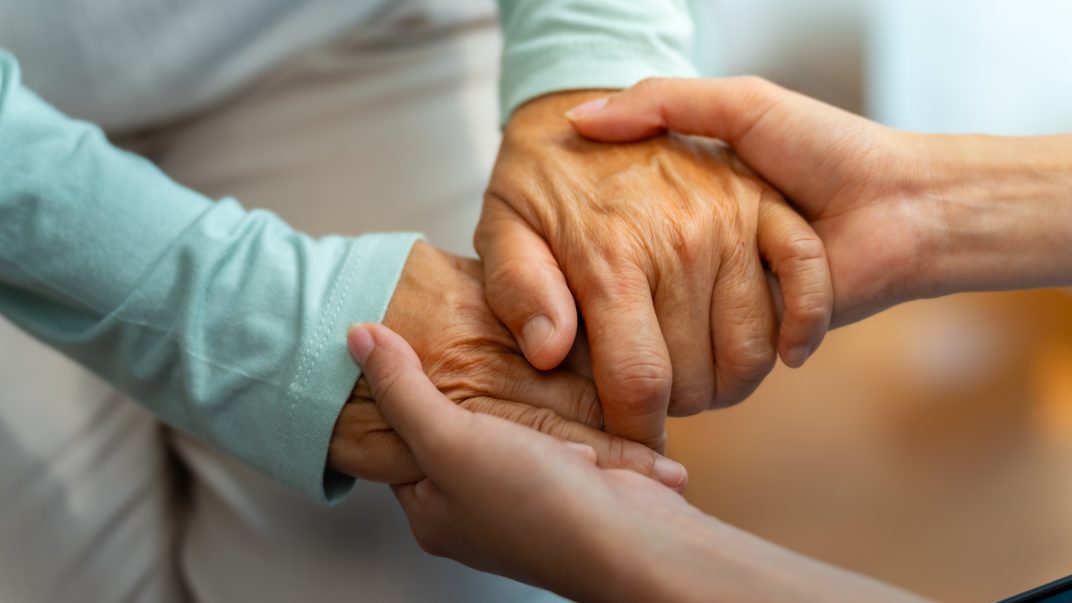Supporting a Loved One Living with Alzheimer’s

Caring for someone with Alzheimer’s disease is often described as a marathon rather than a sprint. The journey can span years, with moments of deep grief as abilities fade, but also moments of connection and love that become deeply meaningful. It is a role that is both demanding and rewarding — one that no family should have to navigate alone. While every experience is unique, there are guiding principles that can help caregivers find strength, build resilience, and provide the best possible support along the way.
Seek an Early Diagnosis
If you notice changes in memory, behaviour, or daily abilities, don’t dismiss them as “just aging.” Forgetfulness, confusion, or shifts in mood can be early signs of Alzheimer’s. Seeking a medical diagnosis as soon as possible is key. Early detection allows for treatments and medications that may slow progression, and it also gives families more time to plan ahead. Just as importantly, a diagnosis can provide validation — helping everyone involved to understand that the changes you’re seeing have a medical cause. This clarity can bring peace of mind, reduce frustration, and guide you toward the right resources and support networks sooner rather than later.
Make Plans Together, as Soon as Possible
The early stages of Alzheimer’s provide a valuable window for important conversations. Talking about medical wishes, financial matters, and legal documents such as power of attorney and health care directives ensures that your loved one’s voice is heard while they can still participate. These conversations are not always easy, but they create clarity and reduce conflict later on. Planning ahead also gives families peace of mind — knowing that when difficult decisions arise, they are guided by their loved one’s own preferences. It’s an act of respect and compassion that honours their dignity and values.
Build a Care Team and Support Network
No one should carry the weight of caregiving alone. Alzheimer’s affects the whole family, and leaning on others helps everyone stay stronger. Your care team can include family members, close friends, neighbours, doctors, nurses, and professional caregivers. Think of it as building a circle of support where each person contributes in a way that fits their abilities — from running errands, to sitting with your loved one for an afternoon, to providing medical guidance. Community resources, like the Alzheimer Society’s help line and local support groups, are also invaluable. Knowing where you can delegate tasks, and where your unique presence is most needed, allows you to create a sustainable rhythm of care.
Learn About the Disease and Its Progression
Knowledge is empowering. The more you understand Alzheimer’s and how it progresses, the better prepared you’ll be for the changes ahead. Education helps reduce fear of the unknown and gives you tools to respond with patience and compassion. For example, instead of correcting a loved one when they make a mistake, you might learn to gently go along with their version of events, reducing stress for both of you. Many community programs, workshops, and online resources offer ongoing education for families, equipping you with strategies for communication, behaviour changes, and daily routines. When you know what to expect, you can focus more on creating moments of comfort and joy, even in difficult circumstances.
Remember to Care for Yourself
Caregiving is a demanding, 24-hour role, and it’s easy for caregivers to neglect their own health and well-being. But your ability to provide care depends on how well you care for yourself. Watch for signs of burnout — such as fatigue, irritability, or withdrawing from others — and take them seriously. Even small breaks, like going for a walk, sharing a coffee with a friend, or asking someone to step in for a few hours, can make a difference. Seeking respite care or support from professionals is not a sign of weakness; it’s an act of strength that allows you to continue being present for your loved one. Remember: caregiving is not about doing everything alone, but about creating a balance that protects your health while ensuring your loved one receives the care they deserve.
Moving Forward with Support
Caring for someone with Alzheimer’s can be one of the hardest — and most meaningful — journeys a family will ever face. Alongside the challenges, there are moments of unexpected closeness, tenderness, and grace. With the right support, families can navigate this journey with dignity, compassion, and strength.
So, if you or a loved one is living with Alzheimer’s, we’re here to help. Learn more about our support services and speak with one of our friendly Vyta Lifestyle Advisors today!